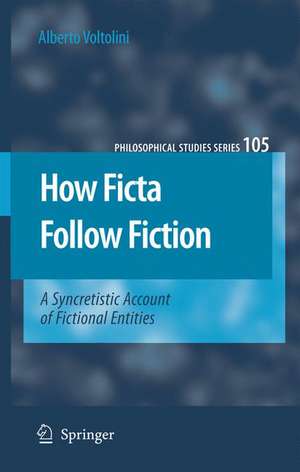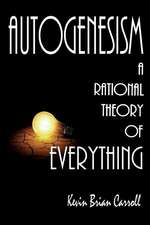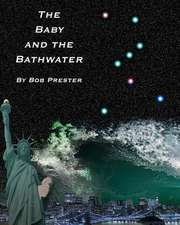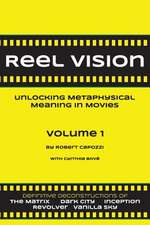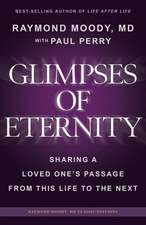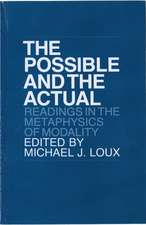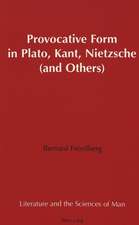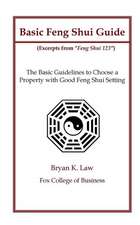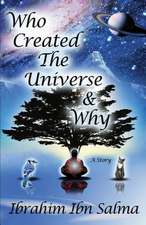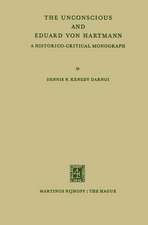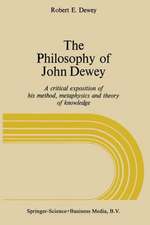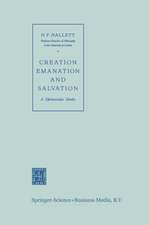How Ficta Follow Fiction: A Syncretistic Account of Fictional Entities: Philosophical Studies Series, cartea 105
Autor Alberto Voltolinien Limba Engleză Hardback – 29 noi 2006
| Toate formatele și edițiile | Preț | Express |
|---|---|---|
| Paperback (1) | 944.82 lei 6-8 săpt. | |
| SPRINGER NETHERLANDS – 25 noi 2010 | 944.82 lei 6-8 săpt. | |
| Hardback (1) | 950.96 lei 6-8 săpt. | |
| SPRINGER NETHERLANDS – 29 noi 2006 | 950.96 lei 6-8 săpt. |
Din seria Philosophical Studies Series
-
 Preț: 407.78 lei
Preț: 407.78 lei - 15%
 Preț: 644.95 lei
Preț: 644.95 lei - 18%
 Preț: 1120.18 lei
Preț: 1120.18 lei - 18%
 Preț: 1005.43 lei
Preț: 1005.43 lei - 15%
 Preț: 640.06 lei
Preț: 640.06 lei -
 Preț: 381.21 lei
Preț: 381.21 lei -
 Preț: 391.61 lei
Preț: 391.61 lei - 15%
 Preț: 640.88 lei
Preț: 640.88 lei - 15%
 Preț: 639.25 lei
Preț: 639.25 lei - 18%
 Preț: 1221.51 lei
Preț: 1221.51 lei - 18%
 Preț: 947.18 lei
Preț: 947.18 lei - 18%
 Preț: 955.56 lei
Preț: 955.56 lei - 15%
 Preț: 645.47 lei
Preț: 645.47 lei - 15%
 Preț: 635.79 lei
Preț: 635.79 lei - 15%
 Preț: 644.82 lei
Preț: 644.82 lei - 18%
 Preț: 950.66 lei
Preț: 950.66 lei -
 Preț: 386.00 lei
Preț: 386.00 lei - 15%
 Preț: 644.82 lei
Preț: 644.82 lei - 15%
 Preț: 642.18 lei
Preț: 642.18 lei - 15%
 Preț: 643.48 lei
Preț: 643.48 lei - 18%
 Preț: 944.99 lei
Preț: 944.99 lei - 15%
 Preț: 638.76 lei
Preț: 638.76 lei - 20%
 Preț: 553.25 lei
Preț: 553.25 lei - 20%
 Preț: 560.31 lei
Preț: 560.31 lei - 18%
 Preț: 951.29 lei
Preț: 951.29 lei - 18%
 Preț: 893.40 lei
Preț: 893.40 lei - 20%
 Preț: 566.76 lei
Preț: 566.76 lei - 18%
 Preț: 951.77 lei
Preț: 951.77 lei
Preț: 950.96 lei
Preț vechi: 1159.71 lei
-18% Nou
Puncte Express: 1426
Preț estimativ în valută:
181.99€ • 189.30$ • 150.24£
181.99€ • 189.30$ • 150.24£
Carte tipărită la comandă
Livrare economică 14-28 aprilie
Preluare comenzi: 021 569.72.76
Specificații
ISBN-13: 9781402051463
ISBN-10: 1402051468
Pagini: 304
Ilustrații: XXIV, 280 p.
Dimensiuni: 155 x 235 x 27 mm
Greutate: 0.6 kg
Ediția:2006
Editura: SPRINGER NETHERLANDS
Colecția Springer
Seria Philosophical Studies Series
Locul publicării:Dordrecht, Netherlands
ISBN-10: 1402051468
Pagini: 304
Ilustrații: XXIV, 280 p.
Dimensiuni: 155 x 235 x 27 mm
Greutate: 0.6 kg
Ediția:2006
Editura: SPRINGER NETHERLANDS
Colecția Springer
Seria Philosophical Studies Series
Locul publicării:Dordrecht, Netherlands
Public țintă
ResearchCuprins
The Metaphysical Side.- The Committal Theories (I).- The Committal Theories (II).- The Syncretistic Theory.- Further Developments of the Syncretistic Theory.- The Semantic Side.- The Noncommittal Theories.- The Syncretistic Theory.- The Ontological Side.- An Ontological Argument in Favor of the Existence of Fictional Entities.
Recenzii
From the reviews:
"In How Ficta Follow Fiction,Voltolini presents us with one of the richest and most ingenious defences of fictional entities (ficta)." (Eros Corazza, Carleton University, in dialectica Vol. 63 (1), 2009, book symposium on A. Voltolini's How Ficta Follow Fiction)
"The book will be very useful for all those who want to have a guided overview of the state of the art in the field, and very helpful if used as a main text for an introductory graduate course." (Manuel García-Carpintero, University of Barcelona, in dialectica Vol. 63 (1), 2009, book symposium on A. Voltolini's How Ficta Follow Fiction)
"This book is extremely well written and the issues clearly set before the reader. I happily recommend this work. It provides genuine food for thought and is a must for students, specialists and anyone interested in fiction, the philosophy of language, or metaphysics." (Alex Orenstein, Queens College and the Graduate Center, CUNY, in The Review of Metaphysics)
"[...] one can't but be impressed by the quality of Voltolini's contribution to the question he sets out to discuss in the book." (Frederick Kroon, University of Auckland, in Australasian Journal of Philosophy)
"[How Ficta Follow Fiction] is a paradigm of excellent philosophy and sets a new benchmark in the discussion of fictional objects." (Anthony Everett, Bristol University, in Notre Dame Philosophical Reviews)
"How Ficta Follow Fiction is divided in three parts. … Voltolini’s work is an outstanding contribution to the debate in the ontology of fiction, and a must reading for any interested in the topic. More than this, it is a deep and original book, filled with bold positions and provocative insights on a host of different themes in metaphysics and the philosophy of language." (Giuseppe Spolaore, in Epistemologia Vol. 30 (2), 2007)
"In How Ficta Follow Fiction,Voltolini presents us with one of the richest and most ingenious defences of fictional entities (ficta)." (Eros Corazza, Carleton University, in dialectica Vol. 63 (1), 2009, book symposium on A. Voltolini's How Ficta Follow Fiction)
"The book will be very useful for all those who want to have a guided overview of the state of the art in the field, and very helpful if used as a main text for an introductory graduate course." (Manuel García-Carpintero, University of Barcelona, in dialectica Vol. 63 (1), 2009, book symposium on A. Voltolini's How Ficta Follow Fiction)
"This book is extremely well written and the issues clearly set before the reader. I happily recommend this work. It provides genuine food for thought and is a must for students, specialists and anyone interested in fiction, the philosophy of language, or metaphysics." (Alex Orenstein, Queens College and the Graduate Center, CUNY, in The Review of Metaphysics)
"[...] one can't but be impressed by the quality of Voltolini's contribution to the question he sets out to discuss in the book." (Frederick Kroon, University of Auckland, in Australasian Journal of Philosophy)
"[How Ficta Follow Fiction] is a paradigm of excellent philosophy and sets a new benchmark in the discussion of fictional objects." (Anthony Everett, Bristol University, in Notre Dame Philosophical Reviews)
"How Ficta Follow Fiction is divided in three parts. … Voltolini’s work is an outstanding contribution to the debate in the ontology of fiction, and a must reading for any interested in the topic. More than this, it is a deep and original book, filled with bold positions and provocative insights on a host of different themes in metaphysics and the philosophy of language." (Giuseppe Spolaore, in Epistemologia Vol. 30 (2), 2007)
Textul de pe ultima copertă
This book presents a novel theory of fictional entities which is syncretistic insofar as it integrates the work of previous authors. It puts forward a new metaphysical conception of the nature of these entities, according to which a fictional entity is a compound entity built up from both a make-believe theoretical element and a set theoretical element. The fictional entity is constructed by imagining the existence of an individual with certain properties and adding a set-theoretical element consisting of the set of properties corresponding to the properties of the imagined entity.
Moreover, the book advances a new combined semantic and ontological defence of the existence of fictional entities.
Moreover, the book advances a new combined semantic and ontological defence of the existence of fictional entities.
Caracteristici
A new metaphysics for fictional entities A genuine ontological argument for fictional entities An original treatment of fictional discourse A syncretistic theory
